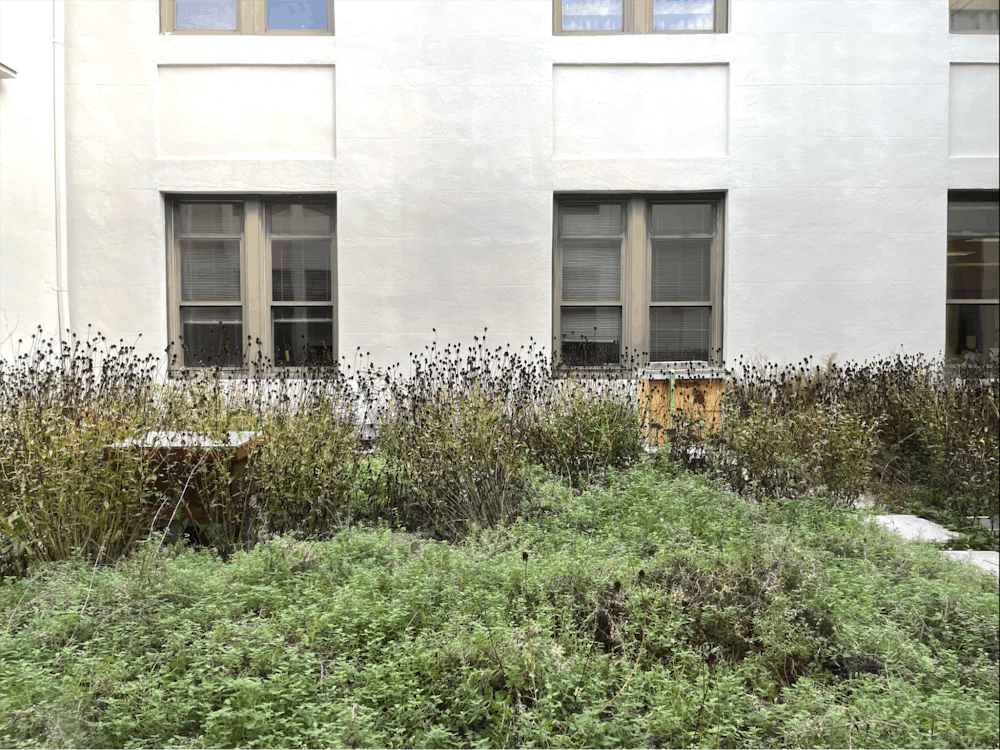Meet the AU Beekeeping Society, a club dedicated to cultivating a sustainable environment, spreading the knowledge of beekeeping and educating members of the AU community about the importance that bees have on the environment.
According to the club’s president and current senior in the College of Arts and Sciences, D.J. Daniels, AU Beekeeping offers a way for students to play an active role in fighting for a brighter, greener future.
“We’re definitely a cornerstone of sustainability,” Daniels said. “[It’s] also just a good place for environmentally inclined [students], or just students who are involved in the environment in sustainability on campus.”
AU Beekeeping is a way to engage students in why bees are so important to the environment and gives them hands-on experience when taking care of the hives, said College of Arts and Sciences senior and Vice President Kira Fontana.
“We’re an environmental club, but through our love of bees and beekeeping,” Fontana said. “Our purpose is outreach and education.”
The U.S. Department of Agriculture states that bees are a key part of agricultural production and healthy ecosystem function. Bees and the pollination they provide are directly tied to the nursery industry; seed plot’s performance and regrowing plant communities in rehabilitated areas are both influenced by the crucial pollination bees provide. And despite urbanization and intensification of farming, native bees are still able to provide bountiful crop visitation in various landscapes, contributing to not only financial gain, but also a diverse, healthy and balanced ecosystem.
A 2019 study from the National Center for Biotechnology Information found that urbanization can lessen and decay the habitat of bees and other pollinators. Increasing urban development harms pollinators by a series of direct and indirect effects, many of which include urban warming, frequent and increased exposure to environmental contaminants and loss and modification of habitat.
AU Beekeeping offers an off-campus program where members can become certified beekeepers and an event called “Jeopard-BEE,” a trivia competition that puts participants’ bee knowledge to the test.
AU Beekeeping’s certified beekeeper program is offered through the DC Beekeepers Alliance, a non-profit association of beekeepers in Washington, D.C. Daniels said AU Beekeeping hopes to have a more active role in this program and continue collaboration in the future.
Just like its members, AU Beekeeping recently took a more active role in helping to foster a culture of sustainability. The AU Beekeeping Society was involved in a fund where it helped renovate a beehive-reliant green roof in Mary Graydon Center.
The coronavirus pandemic briefly hindered the group’s plans. Fontana said that the club didn’t host activities during the coronavirus because it was challenging to engage with people.
“It was definitely difficult,” Daniels said. “We decided to take the 2020-2021 year off completely because it was too difficult to post things online and get things in order. Then coming back this year was definitely a struggle.”
However, Daniels admits this brief lapse of time came with its own benefits:
“It gave us an opportunity to start fresh, gave us some time to reset,” she said, “And now we’ve got a brand new e-board coming in. It was great, and we’re able to hold more events than we have in the past as well.”
For Fontana, AU Beekeeping is more than just a sustainability club: it offers space for like-minded students to work together on something they care about.
“I definitely love the friendship and community aspect, it’s just really exciting to be with other students who also think bees are cool or want to help the planet in some way,” Fontana said. “It’s really fun to share that passion for these little creatures that are so important ecologically and do so much as pollinators. They’re so critical and it’s really important, especially as we urbanize more.”
Editor's Note: A previous version of this article contained a spelling mistake.





